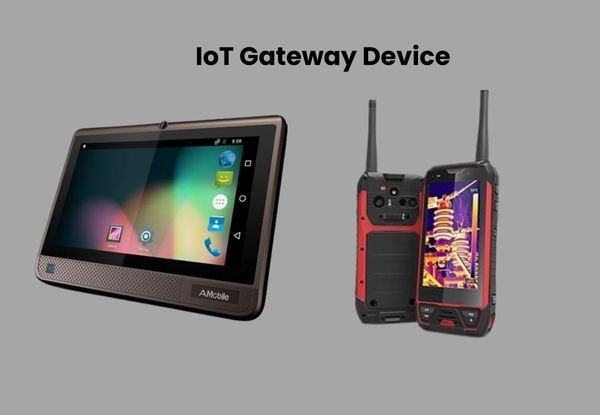Introduction:
In the contemporary landscape of decision-making, the significance of data cannot be overstated. IoT gateway devices play a pivotal role in this paradigm, acting as crucial intermediaries that facilitate the seamless flow of information from a myriad of connected devices to centralized data processing systems. By enabling real-time analytics, these iot gateways empower organizations to derive actionable insights swiftly, thereby enhancing operational efficiency and strategic decision-making. As businesses increasingly rely on data-driven approaches, the integration of IoT gateway technology emerges as a fundamental component in harnessing the full potential of the Internet of Things (IoT) for informed decision-making.
1. Understanding IoT Gateways:
Understanding IoT Gateway Devices:
IoT gateways are pivotal components in the Internet of Things (IoT) ecosystem, serving as intermediaries between various devices and the internet. Their primary function is to connect disparate IoT devices, allowing them to communicate seamlessly and enabling efficient data transfer. These gateways aggregate and preprocess data from devices before transmitting it to cloud-based platforms or on-premises servers, thereby enhancing the overall performance of IoT systems.
Moreover, IoT gateway devices bridge industrial systems with analytics platforms, facilitating real-time data analysis and decision-making. By ensuring reliable communication between sensors and machinery and their respective analytical tools, these gateways empower organizations to derive actionable insights from their operations. Consequently, the integration of IoT gateways not only streamlines data management but also enhances operational efficiency and fosters informed strategic planning.
2. The Role of IoT Gateways in Real-Time Analytics:
IoT gateways serve as crucial intermediaries in the landscape of real-time analytics, adeptly collecting and processing data from various industrial devices. These gateways aggregate data from sensors and machinery, enabling immediate analysis and reducing latency. By utilizing advanced hardware, such as the Advantech industrial PC and Advantech industrial motherboard, these gateways ensure robust performance and reliability, essential for real-time operations.
Data flows seamlessly from industrial devices to cloud platforms through IoT gateways, where it undergoes real-time processing. This streamlined flow facilitates swift decision-making, empowering organizations to respond rapidly to operational changes and optimize processes. The integration of industrial Ethernet solutions further enhances this connectivity, providing high-speed data transmission and ensuring that critical information is relayed without interruption.
In conclusion, IoT gateways play a vital role in real-time analytics, enhancing industrial operations through efficient data collection and transmission. The combination of reliable hardware and advanced networking solutions fosters an environment conducive to informed decision-making in fast-paced industrial settings.
3. Benefits of Real-Time Data Processing for Businesses:
Real-time data processing has become a cornerstone for enhancing operational efficiency and informing strategic business decisions. By enabling organizations to analyze data as it is generated, companies can respond swiftly to emerging trends and operational challenges. For instance, in the manufacturing sector, real-time analytics allows for immediate monitoring of production lines, facilitating prompt adjustments that minimize downtime and optimize resource allocation. Similarly, in logistics, businesses can track shipments in real-time, improving delivery accuracy and customer satisfaction.
Technological advancements, such as the integration of Advantech industrial PCs and Advantech industrial motherboards, further enhance these capabilities by providing robust platforms for data processing and analysis. These tools ensure that businesses can leverage real-time insights effectively, leading to improved decision-making and a competitive edge in their respective markets
4. Key Features to Look for in IoT Gateways:
While selecting IoT gateway devices, several key features are essential for facilitating effective real-time analytics. First, processing power is crucial; robust gateways can handle large volumes of data quickly, ensuring timely insights. Scalability is also vital, as businesses often experience growth in device connectivity and data influx. An ideal IoT gateway should accommodate this expansion seamlessly.
Moreover, compatibility with industrial systems enhances the gateway’s functionality. It ensures that the device can integrate with existing infrastructure, such as industrial Ethernet solutions, enabling smooth communication between devices and central systems. The choice of IoT gateway devices significantly impacts the efficiency of data processing and analytics, ultimately influencing operational decision-making and responsiveness in dynamic environments. Thus, investing in a feature-rich IoT gateway is imperative for organizations aiming to leverage real-time data effectively.
5. Conclusion:
In conclusion, IoT gateways play a pivotal role in bridging the gap between raw data and informed decision-making. By aggregating, processing, and transmitting data from diverse IoT devices, these gateways enhance operational efficiency and responsiveness. Businesses are urged to invest in advanced IoT gateway devices, which not only streamline data flow but also empower faster and smarter decisions. Embracing these technologies will undoubtedly facilitate a more innovation-driven and competitive landscape in the future.

